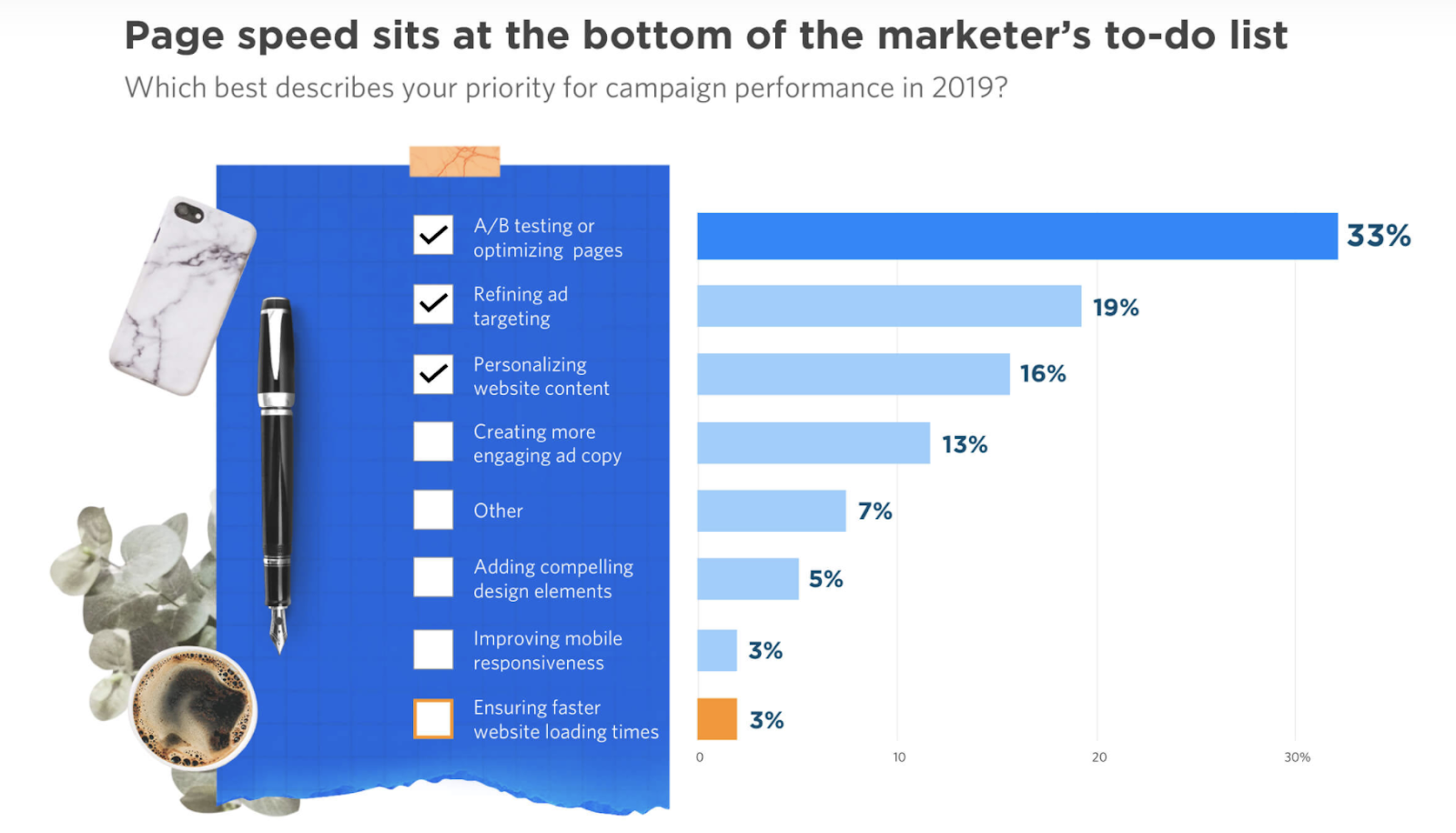Discussing your marketing strategy with your boss is a tricky subject. Earlier, we shared the perfect pitch for paid media. Today, we’re breaking down the importance of SEO.
Explaining SEO is a tough one. Let’s be real—you’re coming out of the gates with an acronym. You’re kind of at a disadvantage. And if your boss is anything like Miranda Priestly from The Devil Wears Prada, your window of opportunity will be a short one.
As you may know, SEO, or search engine optimization, is the process of improving your website to increase its visibility for relevant searches.
Source: Giphy
Sadly, as fascinating as we find SEO, describing what it is won’t resonate with most bosses. But how it makes the business money? Now that’s something to talk about.
So for this article, we’re switching focus. We’re serving up three fast facts on how SEO supports profitability—to help you explain why your SEO campaigns deserve more attention and resources.
With their seal of approval, you’re well on your way towards an award-winning SEO strategy (that would even impress Oscar-winner Meryl Streep).
A Quick Re-Introduction to Search Engine Optimization
If you’ve been following the Galactic Fed blog, you’re in the know when it comes to SEO.
You’re aware that search engine page rankings (SERPs) matter, and you want to be near the top to be in the running for clicks.
You know a thing or two about keywords and how to use ’em. (Hello, long-tail keywords!). But also know that it’s not all about keywords.
Speaking of—off-page SEO and on-page SEO is nothing new to you, and you believe both should be considered in your strategy.
Backlinks, shmacklinks. You know how to get them from quality sources.
Lastly, and most importantly, you understand that organic search traffic is where it’s at. Despite the rise of social media and other traffic sources, organic is still the number one driver of website visitors—and SEO increases both the quantity and quality of organic traffic.
Source: Search Engine Land
This means that improving your SEO hugely increases your visibility and searchability.
And that leads to more traffic and more conversions.
And more conversions mean more sales, customers, and revenue.
But you knew all of this, right? Now it’s time to translate it for your boss.
3 Fast Facts on How SEO Supports Profitability
If you’ve caught your boss’ attention (“Conversions!” “Sales!” “Customers!” “Revenue!”), they’ll want details and numbers, not just buzzwords. So here are 3 fast facts you can fire their way.
1. SEO makes your website visible to high-intent searchers
With strong SEO, your website isn’t popping up in front of any ‘ol audience. These people are high-intent, quality prospects. How do we know this? From their searches.
Let’s say you sell heated massage office chairs (#WFH), and you’re targeting the long-tail keyword “heated massage office chairs for sale near me.” I’m going to assume this keyword isn’t searched often. But when it is, these users mean business—they want a heated massage office chair stat.
What people search for clearly indicates to search engines what they’re looking for. If you have strong SEO, these search engines will send your website to the top of the list. That means your website is conveniently sitting in front of people who want to convert. Sounds too good to be true, right?
Snagging these top spots can be incredibly lucrative. This study analyzed 5 million Google searches and found that the #1 result in Google’s organic search results has an average CTR of 31.7%. And as we move down the SERPs, CTR rates drastically decrease. In fact, the #1 organic result is 10x more likely to receive a click compared to a page in the #10 spot. Now is not the time to be second best—you gotta go for gold!
2. SEO enables a smooth buying experience
Technical SEO is mumbo jumbo to most folks, not just our bosses. With that being said, it’s crucial for turning clicks into conversions. Why? A poorly-built website slows page load time—and according to this 2019 study, nearly 70% of consumers admit that page speed impacts their willingness to buy from an online retailer.
Given that more than 50% of visitors leave a page if they’re forced to wait longer than 3 seconds—and that the average time it takes a mobile page to load is 15 seconds—page load time could certainly be affecting your conversion rate. And if someone is interested in purchasing your heated massage office chair, the last thing you want is to lose their business because of something like page speed.
Spending time doing a technical review is important for your long-term SEO strategy. It not only tells search engine crawlers that your site offers a positive user experience, but it also enables a smooth buying experience.
The cherry on top? Faster load times could give you a big leg up on the competition. According to the same study, page speed sits at the bottom of most marketers’ to-do lists. Technical SEO is dry, but the pay-off could be big.

3. SEO stretches your PPC campaign budget
If you recently just explained the importance of paid media to your boss, this is something they should also hear: SEO tactics can stretch your PPC budget.
Take keyword targeting, for example. Without SEO knowledge, someone selling running shoes may think they should target the keyword “running shoes.” But then they’d be spending big bucks competing with big brands like Nike (and their even bigger budgets). However, spending time doing proper keyword research can help identify long-tail keywords that are cheaper to target (and, as we mentioned, will bring in better traffic).
And quality traffic means a lower cost-per-click (CPC) and cost-per-acquisition (CPA). If you’re running a PPC campaign, you have to pay for every click on your ad. But if you’re snagging the clicks of high-intent prospects, you’ll also snag more conversions—increasing your ROI and making every click count!
Unless you’re outsourcing SEO, SEO initiatives are cheap—they’re technically free!—but they do require time and labor. (And hopefully, your boss can now also see that it warrants your time and labor.)
A Whole New Meaning to SEO
Your boss’ reaction when you mention SEO before reading this article:
Your boss’ reaction when you explain SEO after reading this article:
See the difference? There’s no greater feeling than leaving your boss in awe of your marketing genius.
By explaining the “so what” of SEO and how it impacts revenue growth and cost savings, we hope SEO leaves your boss silently impressed—and snags a top spot in your marketing strategy.
And hey—if you also scored some budget for outsourcing SEO, send us a message. We’ve got experts ready to bring these SEO goals to life!

